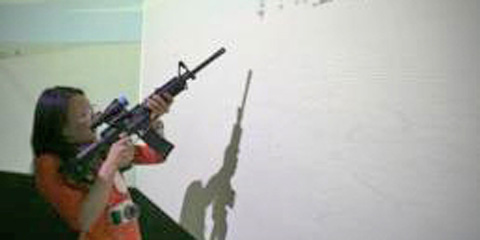News Archive
-

Vern Bengtson, a senior scientist with the USC Edward R. Roybal Institute on Aging at the USC School of Social Work, is the recipient of the 2014 Eugene Litwak Award from the Mailman School of Public Health at Columbia University.
Each year, a distinguished social scientist whose research addresses the social dimensions of health and illness is honored by Columbia’s Mailman School and invited to give a public lecture. The event was established in honor of Eugene Litwak, professor emeritus of public health, social work and sociology at Columbia University.
-

For decades, young people who ran afoul of the law found themselves in dismal locked facilities, surrounded by barbed wire and chain-link fences.
These jail-like structures, featuring large dormitories and staff members who relied on a controlling and coercive model of oversight, have proven to be ineffective and harmful, leading to increased recidivism, lower academic achievement, issues of alcohol and substance abuse, and mental health problems among youths.
-

If you ask Kimberly Finney to list her accomplishments, you’d be hard-pressed to get a response—not because there haven’t been noteworthy moments in the retired U.S. Air Force officer’s career, but because that’s not her style.
“It’s just part of my training. If there’s something to be done, you just do it,” said Finney, a clinical psychologist and clinical associate professor with the USC School of Social Work. “I very rarely take time to pause to look at what I’m doing or what I’ve done until someone points it out to me.”
Luckily, someone has pointed it out.
-

For Shawn Cervantes, going back to school began as a personal desire to help her family, but it has since grown into a drive to change her community.
An Army wife for 25 years, Cervantes’ main role was caring for her three children during her husband’s multiple deployments. It was his last deployment in 2005—when his vehicle was hit by an improvised explosive device—that led her back into the classroom.
“When he came home, he wasn’t interested in getting any type of care. He was an old Army soldier,” she said.
-

Ron Avi Astor’s social work career started out with a series of coincidences.
-

Students, staff and alumni from the University of Southern California and University of California, Los Angeles, recently toured the Marine Corps Air Ground Combat Center in Twentynine Palms, Calif.
Tour participants, most of them graduate students looking to pursue a career in social work, public health or counseling, expressed interest in touring the Combat Center as many of them hope to have a career affiliated with helping military personnel.
-

Every year, residents of Lucca, in Tuscany, celebrate the end of Nazi occupation by honoring the Americans who came to liberate it.
In 1944, much of occupied Tuscany was freed by the U.S. Army 92nd Infantry Division, the only segregated division to fight in Europe during World War II. They were known as buffalo soldiers.
“Here we were in World War II, giving them their freedom and not even free ourselves,” said Ivan Houston, a former Army sergeant and author of “Black Warriors: The Buffalo Soldiers of World War II.”
“We were second-class citizens.”
-

As a young scholar in Taiwan, Shinyi Wu felt like she was being pulled in opposite directions.
Despite being drawn to the social sciences and efforts to improve societal well-being, she possessed a strong desire to pursue a career in the natural sciences and engineering. At that time, those interests led down separate and mutually exclusive paths in academia.
Wu eventually settled on industrial engineering, but she never lost her passion for devising ways to improve the health and well-being of vulnerable individuals from a wider perspective.
-

Leslie Wind, clinical associate professor and associate dean of academic programs at the USC School of Social Work, has received a Lifetime Achievement Award from the National Association of Social Workers California Chapter’s Region F for decades of work dedicated to improving lives all over the United States.
-

A ground-breaking two-day event at the University of Southern California’s School of Social Work brought together researchers, policymakers, agency leaders, philanthropic funders and community partners to discuss a new data network focused on linking information concerning children’s services.